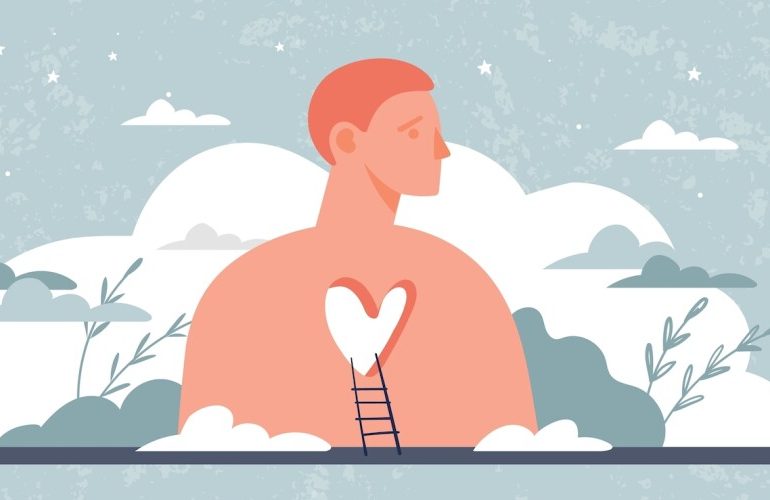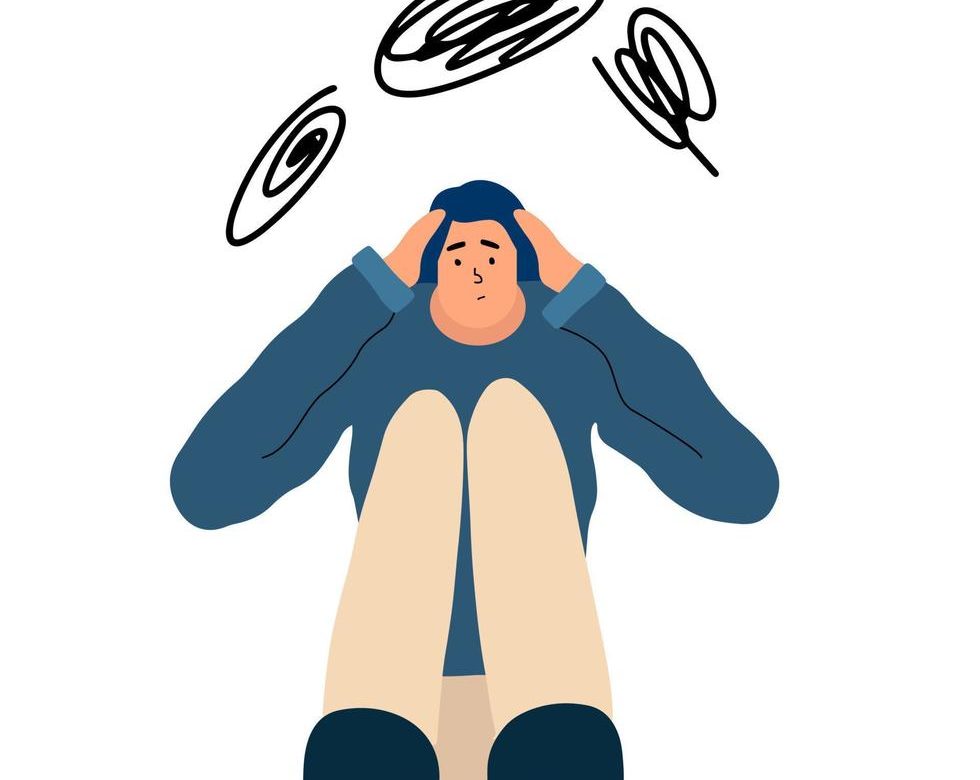Why We Try to Fix Difficult People: A Symptom of Childhood Trauma
Childhood trauma leaves deep and often invisible wounds, shaping how we perceive relationships and behave within them. Gabor Maté, a renowned expert in trauma and addiction, profoundly states, “Trauma is not what happens to you; it’s what happens inside you as a result of what happens to you.” One definitive symptom of unresolved childhood trauma is the relentless effort to win over difficult people—those who are unavailable, critical, or emotionally unsafe—in the hope that they will finally offer us the kindness and validation we crave.
This dynamic is both a reflection of past wounds and a pattern that perpetuates emotional pain. Patrick Teahan, a licensed therapist specializing in childhood trauma, highlights that these efforts are often subconscious attempts to “fix” our past through our present relationships, as we seek to recreate and resolve the dynamics of our early attachments.
At Counselling and Psychotherapy Services for Men in Sydney, Christian Acuña aligns with these insights, working closely with clients to untangle these patterns. By addressing the roots of these behaviors, his approach empowers individuals to break free from cycles of pain and build healthier, more fulfilling relationships. Let’s explore why this happens, its roots in childhood, and how therapy can help you heal and move forward.
The Roots of This Behaviour
Many of us carry attachment wounds from childhood. If our early caregivers were neglectful, inconsistent, or emotionally unavailable, we may have learned to equate love with struggle. Instead of feeling inherently deserving of love and care, we develop a belief that we must earn it by pleasing or fixing others. This belief stems from a child’s natural instinct to maintain attachment to their caregivers, even when those caregivers fail to meet their emotional needs.
Research on attachment theory highlights how these early experiences shape our internal working models of relationships (Bowlby, 1988). If love and safety were unpredictable in childhood, we may unconsciously seek out similar dynamics in adulthood, gravitating toward difficult partners, friends, or authority figures, believing that “winning” their affection will heal the wounds of the past.

The Repetition Compulsion: Reliving the Familiar
When childhood relationships are marked by neglect, criticism, or emotional unavailability, our nervous system adapts to these dynamics as a form of survival. As adults, we may find ourselves unconsciously drawn to similar relationships, often with difficult or emotionally distant people, hoping to “get it right” this time. This phenomenon, known as repetition compulsion, is deeply rooted in the psyche and was first introduced by Sigmund Freud. Later, trauma experts like Gabor Maté expanded on the concept, highlighting how it reflects an attempt to rewrite the unresolved narratives of our early years.
Repetition compulsion isn’t just a theoretical idea; it’s a cycle driven by deeply ingrained emotional patterns. For instance, if a parent was emotionally distant, we might seek out partners, friends, or colleagues who display similar traits, believing that if we can earn their love or approval, we can finally heal the wounds of our past. However, this rarely leads to the resolution we hope for. Difficult people are often difficult because of their own unresolved issues, which we cannot fix, no matter how much effort we invest.
The Cycle of Repetition
Repetition compulsion creates a destructive cycle that perpetuates disappointment, rejection, and self-doubt. A study published in Trauma & Abuse (2021) revealed that individuals with unresolved attachment trauma are significantly more likely to form relationships that mirror the dynamics of their early attachments. This tendency arises from the brain’s effort to seek familiarity, even if that familiarity is painful.
Rather than healing, this pattern often reinforces the very beliefs we aim to overcome—such as the idea that we are unworthy of love or that our value is tied to another person’s validation. As we strive to “fix” difficult people in the present, we are unknowingly recreating the unresolved dynamics of the past, perpetuating cycles of emotional pain.
Breaking Free: Moving Beyond Repetition
Although the cycle of repetition compulsion can feel inescapable, healing is possible. Research in Attachment & Human Development (2022) highlights the importance of secure relationships and therapeutic interventions in breaking these patterns.
Through therapeutic approaches such as Cognitive Behavioural Therapy (CBT) and Compassionate Inquiry, clients learn to identify the unconscious drivers of repetition compulsion. By exploring their emotional patterns and the beliefs formed in childhood, they begin to shift from seeking validation from difficult people to building secure, reciprocal relationships. Co-regulation—a process where the therapist and client work together to stabilise the nervous system—plays a key role in this transformation, helping clients move from hyperarousal (fight-or-flight) or hypoarousal (freeze) into states of calm and connection.
By addressing the root causes of repetition compulsion, individuals can dismantle the patterns that keep them stuck, develop healthier relational frameworks, and rediscover their worth. Healing doesn’t come from fixing difficult people; it comes from choosing relationships where emotional safety, mutual respect, and understanding are at the forefront.
A New Path Forward
The repetition compulsion reflects the human desire to heal through connection, but its execution is flawed. As Gabor Maté notes, “Trauma is not what happens to you; it’s what happens inside you as a result of what happens to you.” True healing occurs when we recognize these patterns, challenge the beliefs they perpetuate, and intentionally choose relationships that foster growth and well-being.
At Counselling and Psychotherapy Services for Men, Christian Acuña supports clients in this journey, guiding them to break free from cycles of emotional pain and build the meaningful connections they deserve. Through therapeutic exploration, clients can learn to embrace relationships that nurture rather than harm, paving the way for a future free from the constraints of the past.
The Emotional Toll
Persistently trying to make a difficult person “be good” to us can have serious emotional consequences, including:
- Chronic anxiety: Feeling like we’re always walking on eggshells.
- Low self-esteem: Believing we are not enough when our efforts to win someone over fail.
- Emotional burnout: Pouring our energy into unreciprocated relationships.
- Fear of abandonment: Staying in unhealthy situations out of fear of being alone.
Breaking the Cycle
Healing begins with understanding the root of this behaviour and recognising that the love we seek from difficult people is something we can only give ourselves. Here are steps to help break free from this cycle:
- Recognise the Pattern: Acknowledge how your current relationships mirror unresolved dynamics from your past.
- Build Self-Awareness: Explore your emotional triggers and the unmet needs driving your behaviour. Therapy can be a powerful tool for this work.
- Practice Self-Compassion: Remind yourself that your worth is not determined by someone else’s behaviour or approval.
- Set Boundaries: Learn to identify when a relationship is draining rather than nourishing, and give yourself permission to step away.
- Prioritise Healthy Relationships: Invest in relationships where you feel seen, valued, and safe. These connections can help rewire your brain’s understanding of love and attachment, as highlighted by co-regulation in attachment theory (Schore, 2001).
Healing Through Therapeutic Relationships: Breaking Free from Toxic Cycles
 Trying to make a difficult person “be good” to us is not a reflection of weakness or failure—it’s a survival strategy rooted in early experiences. This dynamic often stems from unresolved childhood trauma and the unconscious drive to recreate and “fix” familiar relational patterns. Recognising these patterns is the first step toward healing and building relationships that truly nourish your emotional well-being.
Trying to make a difficult person “be good” to us is not a reflection of weakness or failure—it’s a survival strategy rooted in early experiences. This dynamic often stems from unresolved childhood trauma and the unconscious drive to recreate and “fix” familiar relational patterns. Recognising these patterns is the first step toward healing and building relationships that truly nourish your emotional well-being.
At Counselling and Psychotherapy Services for Men in Sydney, Christian Acuña provides a compassionate, judgment-free environment for clients to explore their emotions and fears. The therapeutic relationship serves as a model for relational healing, offering a corrective experience that rewires neural pathways and fosters healthier relational patterns. Through this process, clients begin to break free from the cycles of seeking validation from emotionally unavailable or critical individuals.
As Carl Rogers famously emphasised, unconditional positive regard in therapy creates the foundation for trust and transformation. Research supports this, with studies showing that the quality of the therapeutic alliance is one of the strongest predictors of positive outcomes in psychotherapy (Horvath & Greenberg, 1989). This approach allows clients to feel seen, heard, and accepted, which is essential for healing and growth.
Christian Acuña combines evidence-based practices such as attachment-focused therapy, mindfulness techniques, and existential psychotherapy to help clients uncover the roots of these patterns. Together, you will identify toxic dynamics, develop self-awareness, and cultivate the skills needed to foster relationships grounded in mutual respect and emotional safety.
Take the First Step Toward Freedom and Connection
You don’t have to stay trapped in cycles of chasing love from difficult people or reliving the pain of unmet needs. With the right guidance and support, you can break free from these patterns and embrace the love and connection you deserve. Healing begins with understanding yourself and your needs.
If you’re ready to begin this journey, book a session with Christian Acuña today. Together, you’ll uncover the roots of these patterns, build healthier relational dynamics, and move toward a life of meaningful, fulfilling connections.


